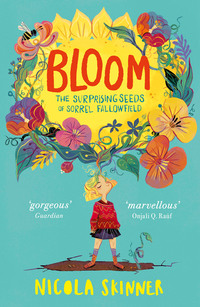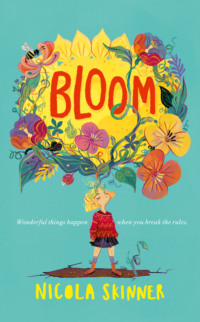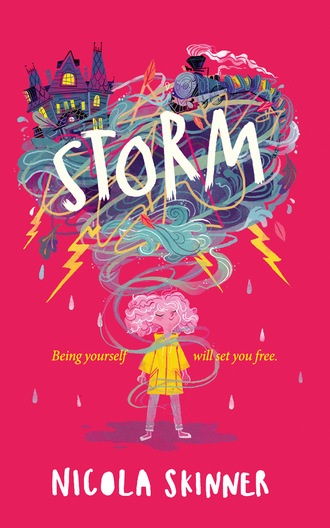
Storm
‘You’ll see her tomorrow,’ said Mum, ‘when the new term starts.’
I glanced around the room in desperation and saw, above the Christmas cards on the mantelpiece, someone equally unimpressed. Me. Glaring back at me from the mirror.
Mum always said I’d grow into my face, but that was easy for her to say. Her jaw and mouth seemed to get on with each other, and even though her hair was also a mass of tight curls, just like mine, hers never went frizzy.
Dad told me to embrace my uniqueness. I was unconvinced. It was all right for him to have thick black eyebrows that almost met in the middle, ruddy cheeks and a strong wide jaw that shoved everything else out of the way so it could bask in the spotlight all by itself. He spent most of his life in his shed in the garden, plus he could grow a beard.
I’d definitely got the dregs of the gene pool, no question. Birdie looked more like Mum, with her hazelnut eyes and silky hair that in no way looked as if it had been accidentally electrocuted.
Dad shuffled the pages of his newspaper. I caught a glimpse of the headline. FREAK EARTHQUAKE ON COA—
Mum sipped from her mug and wiggled her toes. ‘It’s special, the last day of a holiday, isn’t it? All of us, at home, nowhere we have to be.’
‘It’s not that special when you’ve been at home all week,’ I muttered.
Dad shot me a warning, disappointed glance. In our house, you could lose your socks and homework, you could even lose your book bag at least once a week, mentioning no names, but hi, Birdie – but you could never, ever, lose your temper.
‘Shouting creates negative energy and harmful interpersonal toxicity,’ Dad would say. ‘Plus it does our heads in.’
‘Frankie,’ he said now, once.
Birdie’s face creased with worry. She patted the carpet. ‘Do my puzzle with me, Frankie,’ she offered. ‘It’s got sunflowers on. Look.’
She gave me a little smile.
My brain flickered like the lights on the tree.
On.
Off.
On …
Off.
Where it would end up was anyone’s guess.
Perhaps I will sit down. Perhaps I will do that puzzle. Perhaps Mum’s right, and today’s a day for family, and family only.
But then I remembered that easy way Ivy had said, ‘It’s just what we call it. The CP?’
She and Thea were so tight now, they were a ‘we’. She didn’t even have to say her name. Me and Ivy had been like that once. If I missed this lunch, would she ever invite me again? Would Thea Thrubwell speed ahead to the finishing line in our invisible competition for ever?
I rotated my scowl back towards my parents and regarded them with frustration. There was something they weren’t saying. This wasn’t about leftovers. This wasn’t about sacred family time. This was about money. My bones went
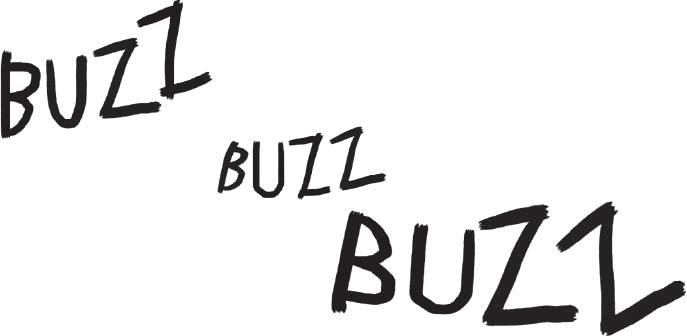
And – I’ve had some time to think about this, so am fairly confident with this theory – that’s when things began to go horribly wrong.
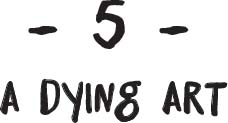
DAD’S OUTPUT WASN’T being consumed in line with current market trends, according to his bank manager. Or as Dad put it, pet portraiture was a noble, misunderstood and dying art. Or as Mum put it, we were broke.
Because, for some mystifying reason, not enough people in our village – or any village, actually – were gazing at their pets and thinking: Do you know what I’d love to do, oh sweet guinea pig of mine? Immortalise you in paint, and fiddlesticks to the cost.
Dad blamed the internet. For just £9.99, people could upload a photo of their pet from any battered mobile and a mere two days later receive a tea towel, T-shirt and key ring printed with that pet’s face. Getting all of that for under a tenner seemed, to most of the British public, a better deal than the £275 Dad charged for one painting. Which took him a month to paint, not two days.
And he wouldn’t even change the price to £274.99, for crying out loud.
‘Mum?’ I turned pleading eyes on her. Mum worked in catering recruitment and found work for chefs and waitresses. ‘You had a bumper month in December, you said!’
But she was shaking her head. ‘Well, yes, technically, but we’ve set aside my commission to spend on stuff that keeps us alive, like food and heating—’
‘Which doesn’t even work—’
‘Oi,’ said Dad. ‘Lower your voice. The energy fields in this room literally just died. I felt it inside me. Very sad.’
I rolled my eyes as loudly as I could.
‘I heard that,’ he muttered.
‘Oh, please stop,’ wailed Birdie.
‘Yes, pack it in,’ said Mum. ‘My favourite film is starting in a minute—’

I snapped.
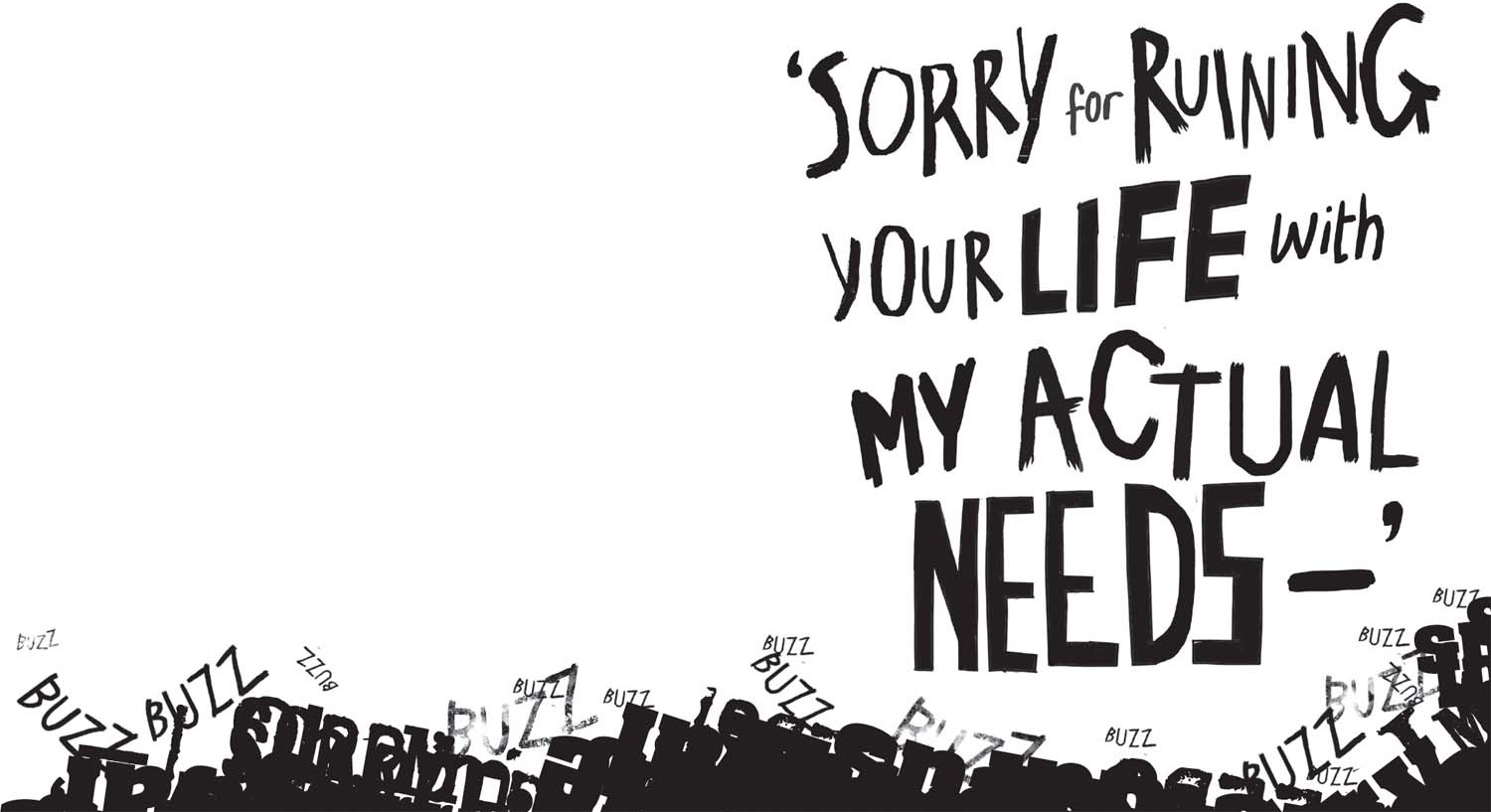
‘That’s enough.’ Dad made some vague sweeping gestures around the room, as if he was trying to shoo the energy fields out of harm’s way. ‘Go away, Frankie,’ he said, ‘until you’ve calmed down.’
‘But—’
‘Now.’
I glared at him, realised there was no point, and stomped up the stairs towards my bedroom, those words in my mouth writhing with frustration. What happens to strong emotions if you’re not allowed to feel them? Where do they go?
Because adults are always at it, aren’t they? Sorting out and tidying up our feelings, squishing them into other shapes if they don’t like the look of them, as if they’re made of Play-Doh or something, right from the moment we’re born. ‘Hush Little Baby, Don’t You Cry’ is essentially just one long lecture about keeping quiet, but set to music. Then when we get older, it’s always ‘Don’t be cross!’, ‘Calm down!’, ‘Buck up’ and
‘Do not set fire to the
village hall,
even
if it
is by
accident.’
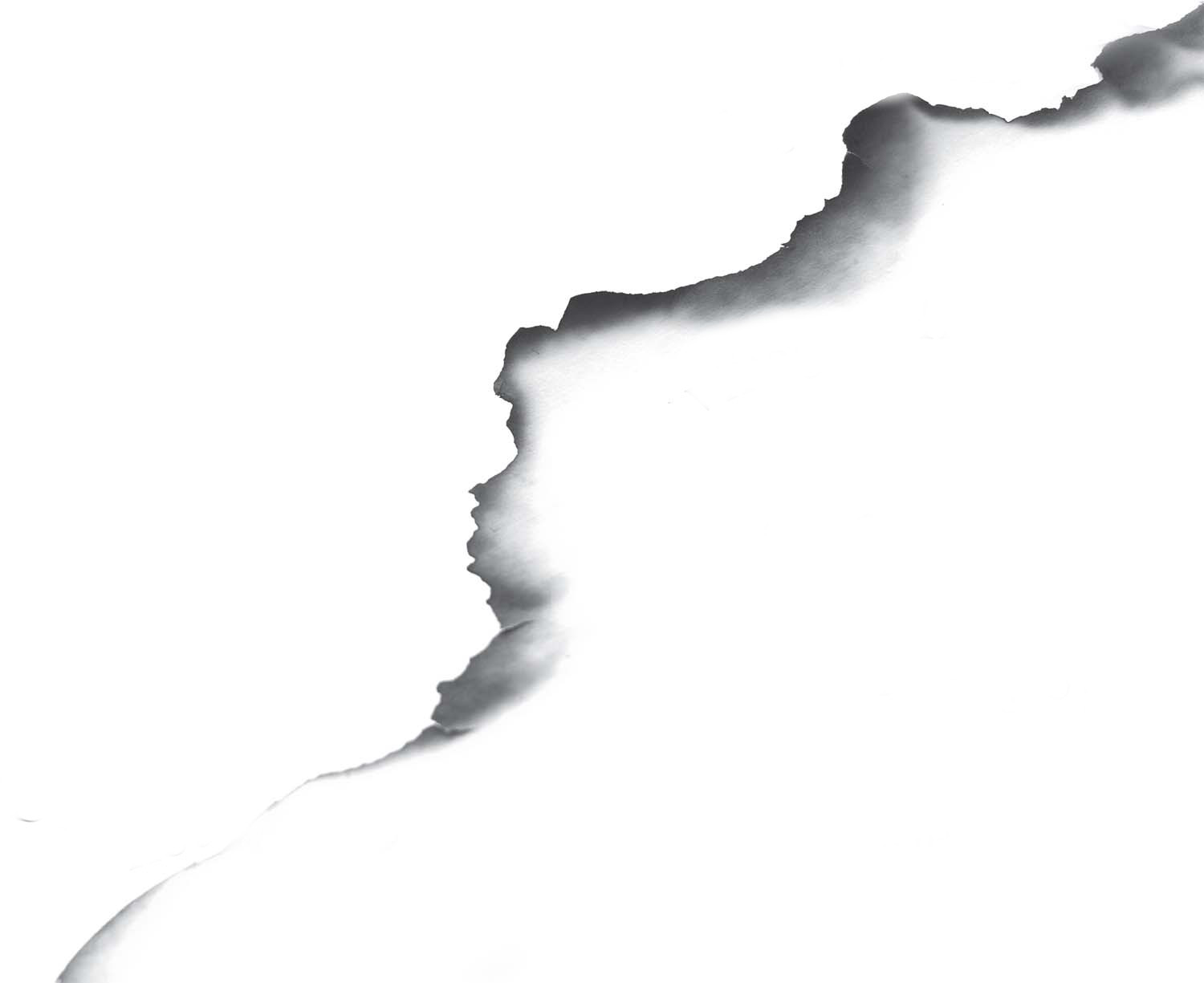
If we’re sad, we’re told to be happy, but if we laugh, it’s a bit too loud. If we’re excited, we’re told to be quiet. And then they say, ‘Everything all right? You’re very quiet.’ It’s a losing game all right.
No one ever says: ‘You know that big, bad, loud feeling you’re experiencing? Well, you go right ahead. Feel away. Don’t let us stop you. Look at you, clever girl, expressing your wonderfully complex personality by shouting, going bright red and slamming doors. We admire your efforts to be so in tune with your inner self and applaud your enthusiasm in this area. Here, have a trophy.’
No. They don’t. Trust me. I did my research in the field, put it that way.
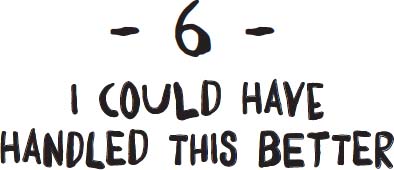
TWENTY MINUTES LATER, there was a knock on my bedroom door.
‘What?’ I said.
Mum poked her head round. Her cheeks were flushed from the fire Dad had lit downstairs, and her mid-morning Prosecco.
‘I do know how important friends are, Frankie. Especially at your age. And me and Dad both recognise that you need opportunities to enjoy peer-to-peer interactions.’
I nodded, not entirely sure what she was talking about, but encouraged anyway.
‘And your birthday is coming up …’ she added, smiling.
‘Seven sleeps.’
‘So if it means that much to you, as an early birthday treat, we’ll go to the Crack Bot for lunch. I mean the Crat Pop. The Crab thingy.’
She looked at me in a meaningful way. ‘But it’s not because you shouted at us. I know, underneath it all, you’re trying to control your temper. We know it’s a challenge for you, and I love you for making an effort, I do. But honestly, Frankie, sometimes I wish you’d find something more important to get angry about.’
I leapt off my bed and hugged her. ‘Thank you,’ I muttered into her woodsmoke curls.
She paused for a moment, as if she wanted to say something else. After a while, she hugged me back. ‘Now go and say sorry to Birdie, please, because she hates it when you get cross, and then let’s get dressed for our posh lunch.’ She glanced out of my window and smiled. ‘It’s stopped raining. Looks like the sun’s trying to come out.’
So I went and made amends. It wasn’t a good apology. I was desperate to get going. I mumbled out ‘Sorry’ and ‘Didn’t mean it’. But Birdie didn’t seem to mind. She just said, ‘It’s all right’ in that husky voice of hers and hugged me tightly, because that’s what she was like. Hopeless at bearing grudges. It was hard to believe we were sisters sometimes.
I had to prise her arms away in the end, saying I needed to get dressed. When she asked if I would put a braid in her hair, I said, ‘Not now’ and ran to my room to get changed.
Not, admittedly, my best moment as her big sister. If I’d known how things were going to turn out, I’d have done it all differently. I’d have cuddled her back as tightly as I could. Plaited her hair for hours. Told her how much I loved her, and why.
Then I’d have stood at the front door and said, ‘I’ve changed my mind! Let’s not go anywhere near the harbour. We’ll stay at home all day – what a great idea. Consider yourselves under house arrest!’
But I didn’t say any of that. Instead I stood in the porch with a face on, and said, ‘What’s taking you all so long?’
I hurried them.
Me. I did that.
Me.
We walked up and down Legkiller Road so much back then I could have navigated it blindfold. It was our path to school, to the harbour and the village. Its real name was Kegmiller Road, but everyone called it Legkiller because of how steep it was. Its other distinguishing features were nettles, brambles, cow pats and potholes, and to reach it you had to cross a rutted field with a scary bull in it called Alan.
But I was so happy about lunch that it might as well have been paved with candyfloss. I practically skipped down it. Within minutes, we crested the hill, and began the slow descent down to the village.
‘It’s so quiet,’ Dad muttered. ‘Can’t even hear the birds singing.’
It was true. The silence around us felt heavy. There was a weird pressure on my eardrums, and by the look of pain on Birdie’s face as she rubbed her ears, I wasn’t the only one. And when we got down to Harbour Street, which was packed with people enjoying the weak winter sun, all its usual sounds felt muffled. Even the screaming gulls and jangling boat masts that provided a noisy soundtrack to every harbour visit were subdued. It felt like Cliffstones was holding its breath.
We went into the restaurant. The others were already sitting at a table by the window.
‘You made it!’ said Ivy, giving me a hug.
‘Course.’ Over Ivy’s shoulder, I gave Thea Thrubwell a big beaming smile, a real face-stretcher, and was rewarded by a baffled stare back. Not the cosy twosome you were expecting, Thrubwell?
‘Sorry it’s rather dark,’ said the waiter as he took our coats. ‘There’s just been a power cut.’
‘Oh dear,’ said Mum.
‘Nothing to worry about,’ he added. ‘Be up and running in a jiffy.’
‘Well, as long as the Prosecco doesn’t get dangerously warm,’ she said.
Outside, a small white terrier by the harbour wall began to bark.
‘Sea looks odd, doesn’t it?’ said Dad, settling himself into his chair.
The dog’s yapping grew more frantic. It kept turning around in frenzied circles, then snarling at the sea. The teenager holding its lead looked confused.
‘Yes,’ said Mrs Thrubwell. ‘Glassy.’
‘Heard about the earthquake?’ said someone. ‘France, wasn’t it?’
‘Only saw the headlines,’ said Dad. ‘Didn’t realise it was—’
‘Yes. Not too far away from us either, as the crow flies.’
The little white dog was almost beside itself by now.
The teenager had stopped laughing at it in confusion and was trying to drag it away from the harbour wall. Some people were pointing at the horizon and their mouths were open and their eyes were wide.
‘What’s everyone looking at?’ muttered Mum, squinting into the sunshine.
‘Is it dolphins?’ gasped Birdie, jumping out of her seat. She had a thing about dolphins.
I looked.
It
wasn’t
dolphins.
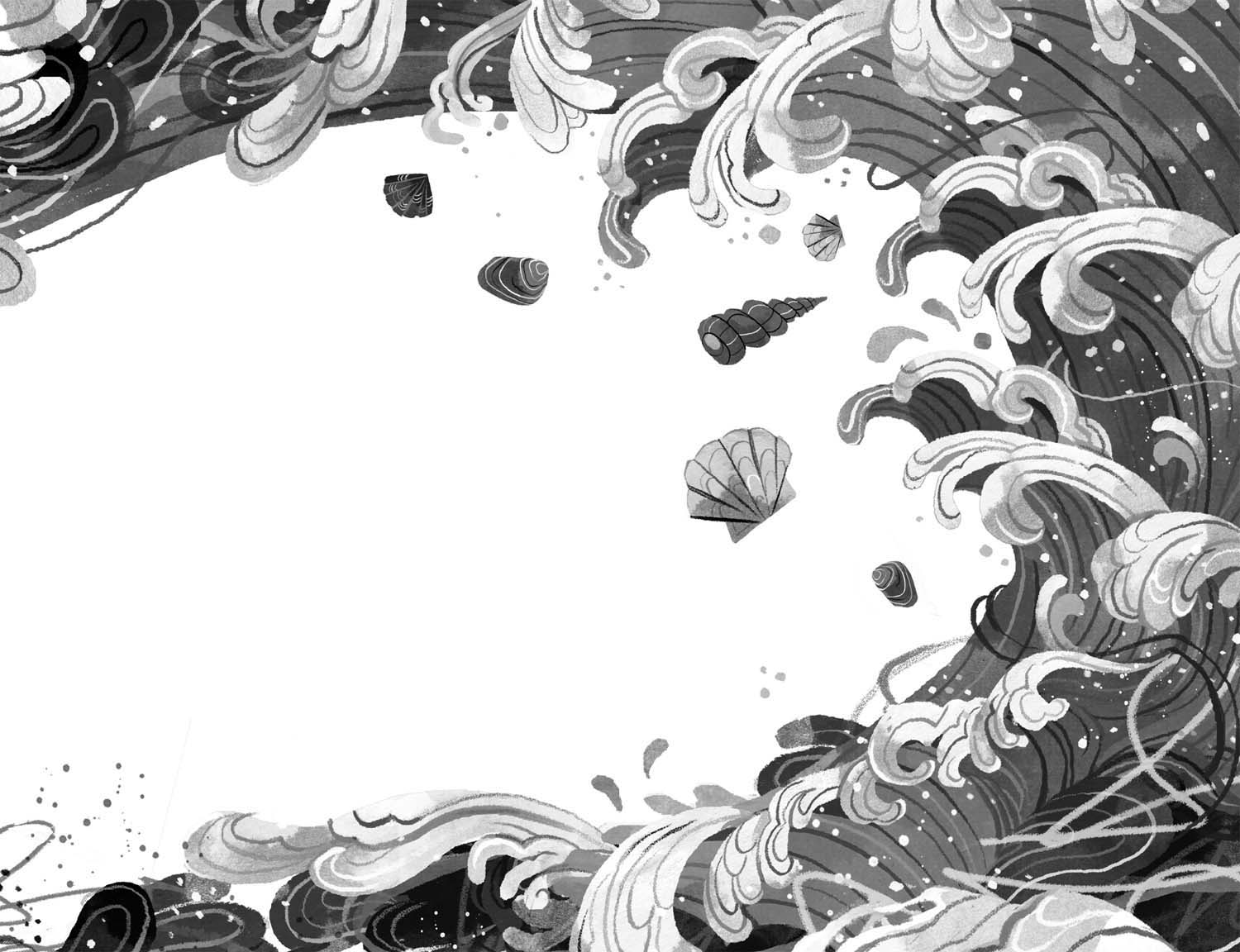

THERE’S BEEN AN accident.
My bed was wet. Oh no. That hadn’t happened in a while. Not since I was five, at least. I was soaking in it. And not just in my pyjama bottoms either. It was everywhere.
My cheeks. My hair.
My eyelashes. Wait – I had wee in my actual eyelashes? How is that even possible? I had literally sprayed myself with my own wee overnight. Did I drink too much hot chocolate last night, when we came back from …
For a scary, sucked-out moment, my brain went blank … The Crab Pot? Course. Must have drunk too much hot chocolate when we got home. Although – had we got home?
I couldn’t remember. Couldn’t scrape together any memory of saying goodbye, or walking back up Legkiller. What had we had for lunch, even? How had the cheesecake tasted? Nothing was there.
Wait.
No.
I did remember something. There had been a dog. Barking. Is that really the only thing you remember? said a voice inside my head.
I frowned and fidgeted uncomfortably in my puddle of wee. No. There were other bits and pieces. Not very nice.
Running?
‘Faster, faster.’ Mum’s voice, hollow, black.
Why had we been running? I waited, holding my breath, to see if anything else would unspool. But nothing. My mind felt like a field at dusk, filled with secrets I couldn’t see, things that rustled in the grasses.
I reached up to dab the wee out of my eyelashes. That’s when I noticed my hands. They were in a bad shape, badly scratched. All my fingernails had been ripped off.
I felt the first nudge of fear touch me then. Cold wet nose, sniffing me out, not in any rush. Hi there. Just wanted to let you know I’m around.
Fortunately, not everything was terrible. I could hear the reassuring sound of someone mowing the lawn. Nothing can ever be that bad when someone is mowing the lawn. This is a scientific fact.
Although why was Dad cutting the grass in January? Just before school? Also, since when had our lawnmower been that loud? And – an unrelated issue, but still worth considering – what was that gritty coating on my gums?
I stuck my finger into my mouth to investigate and it came out dusted in sand.
Wee in my eyelashes. Sand in my mouth.
That was when I first knew, I think. That something quite bad had happened. It jumped through those long grasses in my skull so quickly I couldn’t see its shape and didn’t know its name. But it was there all right.
‘Mum? Dad? Birdie? Anyone?’
I pushed myself to a sitting position on the bed. Another nasty surprise. I wasn’t in my pyjamas. I was still wearing my clothes from yesterday. And they looked awful.
My blue jeans looked like they’d been put through the paper shredder in Mum’s office, and just hung off my legs in strips. One of my trainers was missing, while the other was hanging off my feet, barely clinging on. And my new sparkly Christmas jumper, the one I’d been so excited about wearing to lunch, was damp, stretched and shapeless, with rips across both arms.
How had that happened? Had I fallen out of bed? Had my clothes caught on something? Or could I have ripped them myself, in my sleep?
That hot chocolate must have been a bad batch.
A very bad batch.
Someone should write and complain.
Exhausted, I let my head droop, and stared in confusion at my lap.
There were lots of tiny white things sticking out of my thighs, visible through the rips in my jeans. With battered fingers I tried to pull one out, noticing my skin had gone all pale and rubbery, like old yoghurt.
But maybe that’s just what happens to your skin when you sleep in your own wee for a whole night?
After a few seconds of effort, one of the white things came out with a sucking pop and I held it in my hand.
It was a shell.
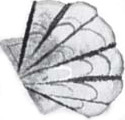

THERE WERE LOADS of them, embedded into my skin, sticking out from my thighs. My legs were like those oranges studded with cloves hanging from our Christmas tree downstairs. And you’d think something like that would hurt, but it didn’t.
That’s because I’m numb with shock though, right?
‘Mum? Dad? Birdie?’ I shouted.
There was no reply.
They must all be outside, admiring that noisy new lawnmower. I ran to my bedroom window – vaguely aware I hadn’t closed my curtains last night, weird – and looked outside.
But Dad wasn’t in our garden, mowing the lawn.
Instead it was three helicopters making that roaring sound, slicing through a sky the colour of wet slate. Their beam lights flickered across the clouds.
I ran into Mum and Dad’s bedroom. Empty.
I went into Birdie’s bedroom. Empty.
I drew closer to her wonky, sea-facing window. The view outside was different. The sea looked like an overcrowded bath, filled with damaged toys. There were buildings in the sea. I saw the roof of Birdie’s primary school. At least seven white caravans were in there too, moving up and down in the waves. Here and there were red and yellow boats, snapped in half like crayons broken by a petulant child.
I hurried downstairs, my gait lopsided from running with one shredded trainer and one bare foot.
‘Mum? Dad? BIRDIE?’
I yelled for them in the kitchen, the sitting room and Mum’s study. But they didn’t come.
After searching the cottage three times, I had to face facts.
They’re not here. They’re missing.
I’ll tell you something else that was missing. Their winter jackets and wellies – they weren’t in the porch. My parka was also missing. The one I’d put on yesterday.
Had they gone out for a walk before school? Without me, but with my parka? WHY?
And how quiet it was. Mornings at home were usually noisy, pop songs blaring out from the radio competing with Birdie shouting that she couldn’t find her book bag, and the ancient coffee machine grinding through its first cycle of the day. But this morning, our house was more like an empty beach than a home. A beach at the end of the day – footprints washed clean by the tide, human existence rubbed away.
Then someone knocked on the front door.
Phew.
I skidded on the floorboards in my rush to get there, and then stopped. Why were they knocking anyway? They had keys.
‘Hello?’ boomed Mum.
‘Anyone there?’ roared Dad.
‘Anyone hurt?’ said a third deep voice.
They did not sound like themselves at all.
Unsure, I took a few steps away, in the direction of the staircase, and then sank down on to its bottom step. I wrapped my arms around myself. The door went RATTLE RATTLE and a few seconds later broke apart in a pile of large wooden splinters and a tall man who was definitely Not Dad pushed his way through its remains.
Behind him came a woman who was definitely Not Mum and a shorter man who was definitely Not Birdie. These Nots wore padded waterproof trousers, the ones that make a swishy noise when you move, big fluorescent jackets and hard hats with the words Coastal Rescue on them. I felt a mixture of relief and fear. They didn’t look like thieving murderers. On the other hand, they had just kicked our door in.
The three of them stood, gathered before me. The grey light that filled the unlit hallway cast shadows on their faces, making it harder for me to see their eyes. I shivered slightly.
‘Hello?’ said the woman.
‘Hello,’ I said.
‘Anyone here?’ she said, throwing anxious, quick glances around the hallway.
‘I’m here,’ I said from my step. ‘But my parents and sister aren’t. Can you help me find them?’
‘Okay,’ said the woman firmly, and I gave her a grateful smile. ‘There’s a car in the drive, so it’s possible the residents are still at home. I spotted a child’s bicycle in the garden so we could be searching for minors. It’s possible they can’t get to the door, so they may be injured. Let’s find some visual ID so we know who we’re looking for.’
The two men nodded.
‘Right,’ said the woman. ‘Ed, find the fuse box and switch everything off.’
‘Got it,’ said Not Dad, the tall man.
The woman turned to the shorter man. ‘Let’s check downstairs first.’
‘But I’ve looked everywhere,’ I said. ‘Three times at least. They’re definitely not here.’
In spite of that, they hurried off in the direction of the sitting room.
They’re double-checking, I thought, getting up from my step to follow them. That’s nice, I suppose.
Off we went.
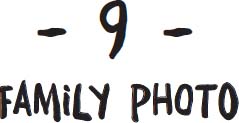
ME AND THE three strangers regarded the jumble of blankets and cushions on the sofa, the overturned mugs on the floor, Dad’s newspaper sprawled out on the carpet. I stood awkwardly in the doorway, hoping they couldn’t smell the wee on me.
‘I have already checked in here,’ I reminded them, as gently as I could.
The man and woman said nothing.
Would it hurt them to reply? I mean, what happened to basic manners?
On the other hand, grown-ups could get that way when they were concentrating. It was like the sound of children’s voices stopped their brains from working properly, so they’d demand silence when confronted with a knotty problem.
This happened quite often at school, and whenever our parents were trying to drive to a new campsite and had forgotten a map again. What I was dealing with here was a case of Grown-ups Needing Total Quiet for Their Thinking Time.
The fairy lights on the Christmas tree went dark.
The tall man appeared in the sitting room. ‘Circuit’s off,’ he said. He walked up to the fireplace in his heavy black boots and began to rifle through the Christmas cards.
Hold on a minute!
On top of being ignored by the other two, this was too much. My throat went all scratchy. ‘Those are private.’
His hand paused for a moment. ‘Did you hear that?’ he said.
The three of them went very still, as if straining to catch a far-off sound.


